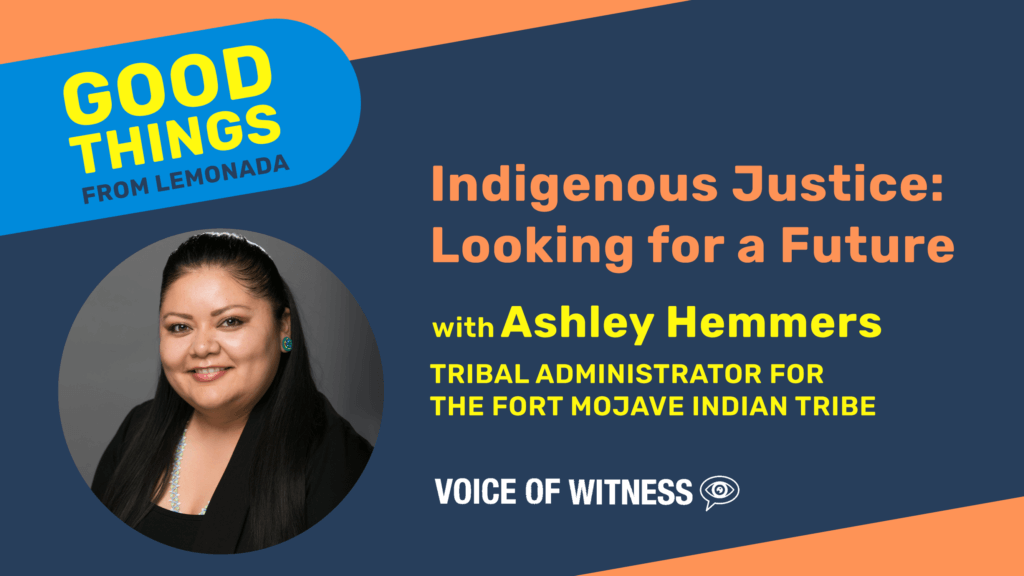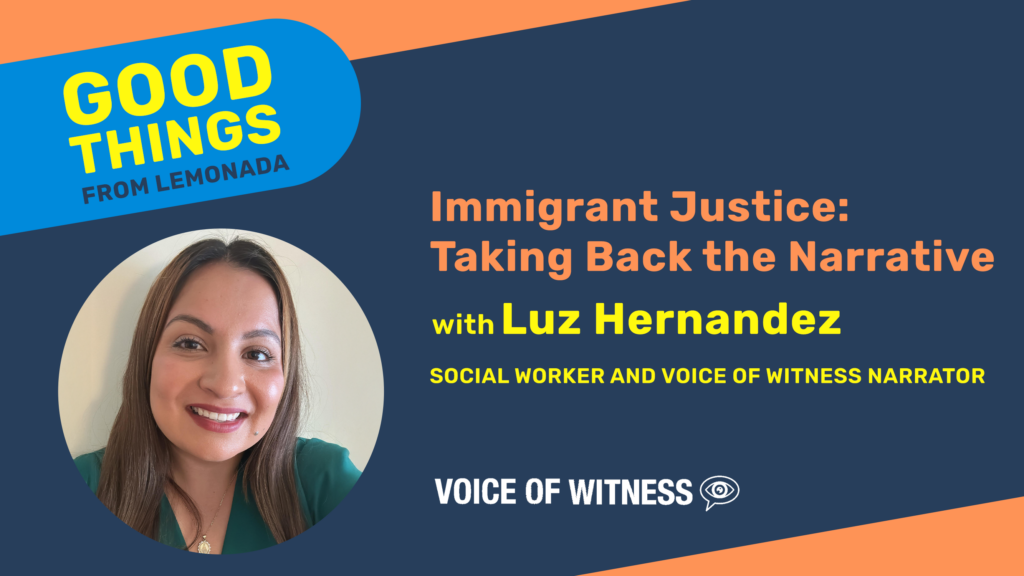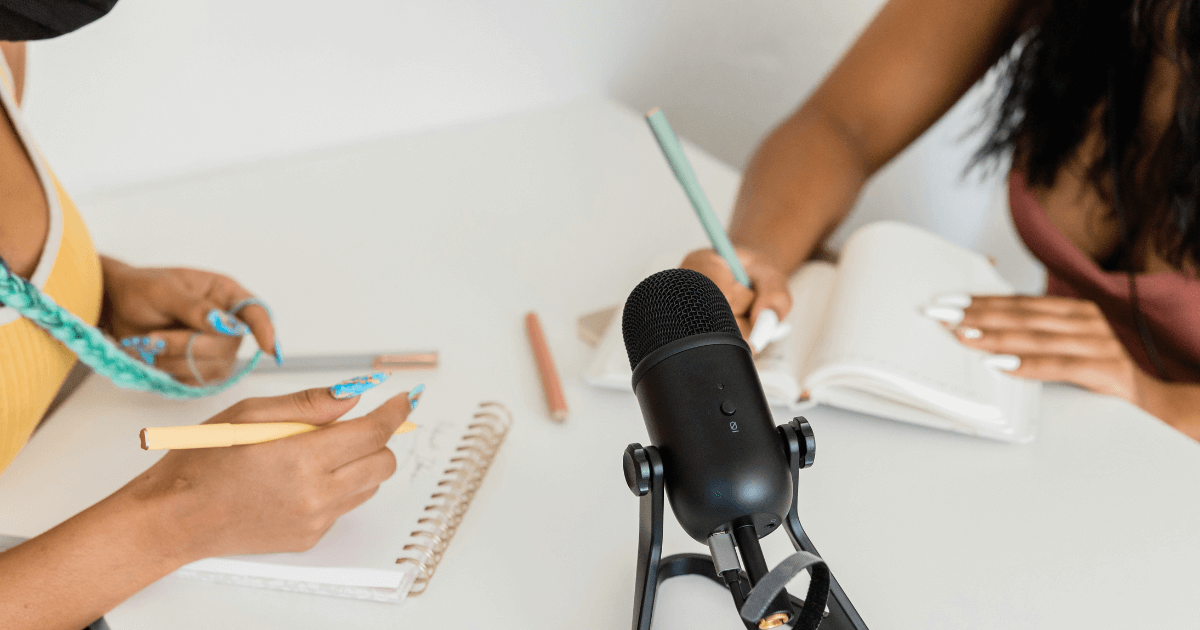How do stories help us challenge, shape, and navigate our democracy? Voice of Witness (VOW) is excited to announce our podcast pilot exploring oral history as a tool for resistance and belonging.
In partnership with the Good Things podcast from Lemonada Media, our first two episodes feature insightful interviews with narrators from Voice of Witness storytelling projects. This collaboration reflects VOW’s work to elevate the oral histories documented in our human rights book series through new multimedia platforms—making them accessible to new audiences.
Good Things is a podcast about people who are rolling up their sleeves and working hard to make things better. Each week, episodes reflect on this country’s most complex issues in an effort to affect systemic change. VOW’s episodes are hosted by Maya Rupert, a political strategist, writer, and advocate.
Listen here or wherever you get your podcasts.
Episode #1: Indigenous Justice: Looking for a Future

The first episode features Ashley Hemmers, a member of the Fort Mojave Indian Tribe. Ashley’s path took her from growing up on her reservation to attending Yale then returning home again. Now a tribal administrator, Ashley shares how storytelling is both a bridge to the past and a pathway to her tribe’s future.
You can read Ashley’s full oral history in the book How We Go Home, along with the powerful stories of eleven other Indigenous narrators fighting for justice. They urge readers to think critically about colonialism and interrelated issues, including intergenerational trauma, resource extraction, sovereignty, and resistance. Free corresponding lesson plans are also available for educators to download.
“Native people are living here presently too. It’s not like we’re these historic figments…There is a reckoning that has to happen and a responsibility…You can’t just omit the shared history and think that no one’s here.”
“When I think of my degree, it really cements my understanding of my own family in terms of my grandma, she’s a survivor of termination and assimilation policy. She was placed in internment for Indian children in camps. She was encamped and then sent to boarding school. In those places, they told her that being Mojave was not appropriate. Don’t speak your language, cut your hair, be disciplined, do this… I share my degree with my grandma, who’s a survivor.
Episode #2: Immigrant Justice: Taking Back the Narrative

The second episode features Luz Hernandez, who left her home country of Honduras to cross borders into the U.S. She was fleeing poverty, sexual abuse, and medical malpractice. The journey was harrowing and so was making a new start in the U.S. Eventually, Luz was able to become a social worker and now offers youth and families the support she had needed when she arrived. In this episode, host Maya Rupert talks to Luz about grit and determination, hope and belonging, and why hearing directly from immigrants—rather than politicians—is crucial to understanding the topic of immigration.
You can read Luz’s full story in the Voice of Witness book Solito, Solita (under the pseudonym Soledad Castillo), along with the oral histories of fourteen other youth refugees from Central America. The narrators describe why they fled their homes, what happened on their journeys crossing borders, and for some, their ongoing struggles to survive in the United States. In an era of fear, xenophobia, and outright lies, these stories document the experiences of migrant youth in their own words. Educators can also check out the free corresponding lesson plans.
“When we decide to come to the U.S., we come for many reasons — poverty, abuse, gang violence. It’s not a choice, it’s not an option. We have to find ways to survive because there’s no way to survive in our country. So the journey is only one of the things that we had to go through in order to be here and try to achieve our dreams. But once we’re here, there’s more obstacles.”
“How do you communicate? How do you seek help? And you don’t know the language. You don’t know the system. You don’t know your rights. I didn’t know my rights. I was scared…That experience was one of the reasons why I decided to become a social worker.”




